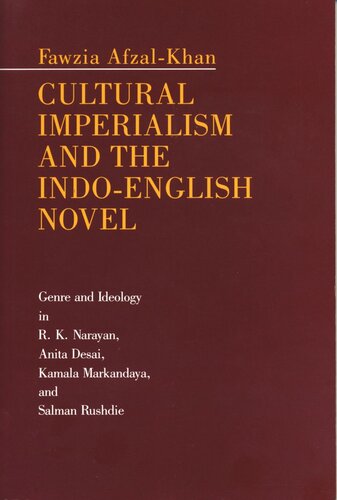

Most ebook files are in PDF format, so you can easily read them using various software such as Foxit Reader or directly on the Google Chrome browser.
Some ebook files are released by publishers in other formats such as .awz, .mobi, .epub, .fb2, etc. You may need to install specific software to read these formats on mobile/PC, such as Calibre.
Please read the tutorial at this link: https://ebookbell.com/faq
We offer FREE conversion to the popular formats you request; however, this may take some time. Therefore, right after payment, please email us, and we will try to provide the service as quickly as possible.
For some exceptional file formats or broken links (if any), please refrain from opening any disputes. Instead, email us first, and we will try to assist within a maximum of 6 hours.
EbookBell Team

4.7
66 reviewsCultural Imperialism and the Indo-English Novel focuses on the novels of R. K. Narayan, Anita Desai, Kamala Markandaya, and Salman Rushdie and explores the tension in these novels between ideology and the generic fictive strategies that shape ideology or are shaped by it. Fawzia Afzal-Khan raises the important question of how much the usage of certain ideological strategies actually helps the ex-colonized writer deal effectively with postcolonial and postindependence trauma and whether or not the choice of a particular genre or mode employed by a writer presupposes the extent to which that writer will be successful in challenging the ideological strategies of "containment" perpetuated by most Western "orientalist" texts and writers. She argues that the formal or generic choices of the four writers studied here reveal that they are using genre as an ideological "strategy of liberation" to help free their peoples and cultures from the hegemonic strategies of "containment" imposed upon them. She concludes that the works studied here constitute an ideological rebuttal of Western writers' denigrating "containment" of non-Western cultures. She also notes that self-criticism, as implied in Rushdie's works, is not be confused with self-hatred, a theme found in Naipaul's work.